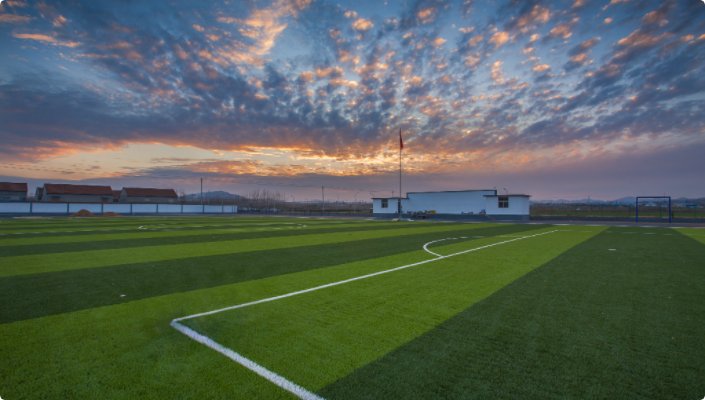
- Afrikaans
- Arabic
- Belarusian
- Bengali
- Czech
- Danish
- Dutch
- English
- Esperanto
- Estonian
- Finnish
- French
- German
- Greek
- Hindi
- Hungarian
- Icelandic
- Indonesian
- irish
- Italian
- Japanese
- kazakh
- Rwandese
- Korean
- Kyrgyz
- Lao
- Latin
- Latvian
- Malay
- Mongolian
- Myanmar
- Norwegian
- Persian
- Polish
- Portuguese
- Romanian
- Russian
- Serbian
- Spanish
- Swedish
- Tagalog
- Tajik
- Thai
- Turkish
- Turkmen
- Ukrainian
- Urdu
- Uighur
- Uzbek
- Vietnamese
preparing ground for artificial grass
Dec . 05, 2024 13:05 Back to list
Preparing Ground for Artificial Grass A Comprehensive Guide
The rise in popularity of artificial grass has transformed the way we think about outdoor spaces. Whether for residential lawns, commercial landscapes, sports fields, or playgrounds, synthetic turf offers a low-maintenance, durable, and aesthetically pleasing alternative to natural grass. However, to ensure the longevity and effectiveness of artificial grass, proper preparation of the ground is crucial. In this article, we will explore the essential steps to prepare the ground for artificial grass installation.
1. Assessing the Area
The first step in preparing the ground is to assess the area where the artificial grass will be installed. Consider the intended use of the space. Is it for a backyard, a sports field, or a pet area? This will influence both the type of synthetic turf you choose and the preparation needed. Ensure that the designated area is free from any existing grass, weeds, or debris, as these can undermine the installation.
2. Removing Existing Grass and Debris
Once the area is assessed, it’s time to clear it. Remove any existing grass and weeds by using a sod cutter or a shovel. When using a shovel, make sure to dig down at least a few inches to remove the root systems. After clearing the grass, make sure the area is free of rocks, sticks, and other debris that could interfere with the installation. A clean surface is essential for proper drainage and turf performance.
3. Leveling the Ground
After removing the existing vegetation, the ground needs to be leveled. The goal is to create a smooth surface that will support the artificial grass. Use a rake to spread soil evenly across the area, filling in any dips or holes. A level surface will not only improve the visual aesthetics of the synthetic turf but also help with water drainage.
4. Compaction
Once the ground is leveled, the next step is to compact the soil. Compacting the ground helps eliminate air pockets that can lead to settling over time, which might create uneven surfaces after the installation of the grass. You can use a hand tamper or a plate compactor for this process. Ensure that the soil is damp for optimal compaction results.
preparing ground for artificial grass

5. Adding a Base Layer
For optimal performance, it’s recommended to lay a base layer before installing the artificial grass. This typically consists of crushed stone or sand, which provides a stable foundation and better drainage. Spread a layer of this material (around 2-3 inches deep) over the compacted soil, then rake it to create an even surface. Again, use a compactor to ensure that this base layer is well settled.
6. Installing a Weed Barrier
To prevent weeds from growing through the artificial grass, it’s a good idea to install a weed barrier cloth over the base layer. This material allows water to drain while inhibiting weed growth. Lay the fabric evenly over the base layer, overlapping the edges if necessary. Secure it in place with landscape staples to ensure it doesn’t shift during installation.
7. Preparing for Drainage
Proper drainage is essential when installing artificial grass to prevent water pooling and damage. Ensure that the ground is sloped away from any structures and that the base layer is porous enough to allow water to move through it. Providing adequate drainage will increase the longevity of the turf and maintain its appearance over time.
8. Final Touches
Before laying the synthetic turf, take the time to do a final inspection of the area. Check for any sharp objects or protruding roots that may have been overlooked. Once satisfied with the ground preparation, you can proceed to install the artificial grass.
Conclusion
Preparing the ground for artificial grass installation may seem like a labor-intensive process, but it is essential for achieving a durable and attractive lawn. By following these steps—assessing the area, removing existing grass, leveling and compacting the ground, adding a base layer, installing a weed barrier, and ensuring proper drainage—you can lay the groundwork for a successful artificial turf installation. With proper preparation, your artificial grass will not only look great but will also serve its purpose effectively for years to come.
-
The Benefits of Artificial Turf for Indoors
NewsJul.15,2025
-
How Artificial Grass Suppliers Ensure Quality Products
NewsJul.15,2025
-
Artificial Grass and Pets: A Space for Relaxation
NewsJul.08,2025
-
Balcony & Outdoor Decoration with Artificial Grass
NewsJul.08,2025
-
Best Indoor Artificial Grass for Home
NewsJul.07,2025
-
Best Pet Turf for Dogs: Safe & Durable Artificial Grass Options
NewsJul.07,2025
Products categories









